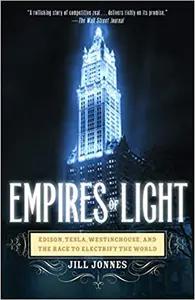Mindstorms: Children, Computers, And Powerful Ideas
By Seymour Papert
Category
TechnologyRecommended by
In "Mindstorms" by Seymour Papert, the reader is taken on a journey to explore the potential of computers in education and intellectual development. Papert introduces the philosophy of constructionism, which advocates for learning through active engagement and hands-on creation. He argues that computers, when used as powerful tools for creating and programming, can foster critical thinking skills and empower learners to become active participants in their own education.
Papert delves into the concept of "microworlds," computer environments designed to enhance learning by providing a space for students to construct their knowledge through experimentation and problem-solving. He highlights the importance of allowing students to engage in activities that reflect their interests, passions, and cultural contexts, as this drives their motivation to learn and explore.
Drawing upon his extensive research and experiences in the field, Papert shares numerous examples of how children, even at a young age, can use computers to engage in complex mathematical thinking, develop logical reasoning skills, and develop a deeper understanding of various subjects. Additionally, he addresses the misconceptions surrounding computers and argues against the notion that they are only useful for automating rote tasks.
With a focus on creativity and the development of a "mathematical mindset," Papert emphasizes the transformative potential of computers in education. He challenges traditional education systems that prioritize memorization and regurgitation, advocating for a more student-centered approach that encourages exploration, collaboration, and intellectual growth.
"Mindstorms" serves as a thought-provoking and influential exploration of the role of computers in education. Papert's insights and perspectives continue to shape the field of educational technology, inspiring educators and learners alike to harness the power of computers as tools for creative expression and meaningful learning.
Papert delves into the concept of "microworlds," computer environments designed to enhance learning by providing a space for students to construct their knowledge through experimentation and problem-solving. He highlights the importance of allowing students to engage in activities that reflect their interests, passions, and cultural contexts, as this drives their motivation to learn and explore.
Drawing upon his extensive research and experiences in the field, Papert shares numerous examples of how children, even at a young age, can use computers to engage in complex mathematical thinking, develop logical reasoning skills, and develop a deeper understanding of various subjects. Additionally, he addresses the misconceptions surrounding computers and argues against the notion that they are only useful for automating rote tasks.
With a focus on creativity and the development of a "mathematical mindset," Papert emphasizes the transformative potential of computers in education. He challenges traditional education systems that prioritize memorization and regurgitation, advocating for a more student-centered approach that encourages exploration, collaboration, and intellectual growth.
"Mindstorms" serves as a thought-provoking and influential exploration of the role of computers in education. Papert's insights and perspectives continue to shape the field of educational technology, inspiring educators and learners alike to harness the power of computers as tools for creative expression and meaningful learning.
Share This Book 📚
More Books in Technology

The Hard Thing About Hard Things
Ben Horowitz

Zero to One
Peter Thiel

The Innovators Dilemma
Clayton Christensen

The Lean Startup
Eric Reis

The Sovereign Individual
James Dale Davidson & William Rees-Mogg

High Growth Handbook
Elad Gil

Blitzscaling
Reid Hoffman

American Kingpin
Nick Bilton

Becoming Steve Jobs
Brent Schlender

Behind the Cloud
Marc Benioff

The Internet of Money Volume 1
Andreas Antonopolous

The Network State
Balaji Srinivasan

AI Superpowers
Kai-Fu Lee

How Innovation Works
Matt Ridley

New Power
Jeremy Heimans

Read Write Own
Chris Dixon

Super Pumped
Mike Isaac

The Airbnb Story
Leigh Gallagher

The Dream Machine
M. Mitchell Waldrop

The Innovators
Walter Isaacson

The Little Bitcoin Book
Bitcoin Collective

The Second Machine Age
Erik Brynjolfsson

The Seventh Sense
Joshua Ramo

Virtual Society
Herman Narula

Whole Earth Discipline
Stewart Brand

Competing in the Age of AI
Marco Iansiti

Dealers of Lightning
Michael A. Hiltzik

Digital Gold
Nathaniel Popper

Don't Make Me Think
Steve Krug

Empires of Light
Jill Jonnes
Popular Books Recommended by Great Minds 📚

Thinking, Fast and Slow
Daniel Kahneman

Who We Are and How We Got Here
David Reich

The Prince
Nicolo Machiavelli

Becoming Steve Jobs
Brent Schlender

When Breath Becomes Air
Paul Kalanithi

Superforecasting
Philip Tetlock

The Moment of Lift
Melinda Gates

The Three Body Problem
Cixin Liu

Einstein
Walter Isaacson

The Network State
Balaji Srinivasan

Economics in One Lesson
Henry Hazlitt

Thinking In Bets
Annie Duke

Hillbilly Elegy
J.D. Vance

Blitzscaling
Reid Hoffman

The Ride of a Lifetime
Bob Iger

How to Change Your Mind
Michael Pollan

The Power of Habit
Charles Duhigg

The Holy Bible
Various

Principles
Ray Dalio

The Lessons of History
Will & Ariel Durant

The Lord of the Rings
J.R.R. Tolkien

Foundation
Isaac Asimov

The Coddling of the American Mind
Greg Lukianoff & Jonathan Haidt

Atlas Shrugged
Ayn Rand

7 Powers
Hamilton Helmer

Sapiens
Yuval Noah Harari

The Fountainhead
Ayn Rand

The Rise And Fall Of American Growth
Robert J. Gordon

The Ascent of Money
Niall Ferguson

Man's Search for Meaning
Viktor Frankl
